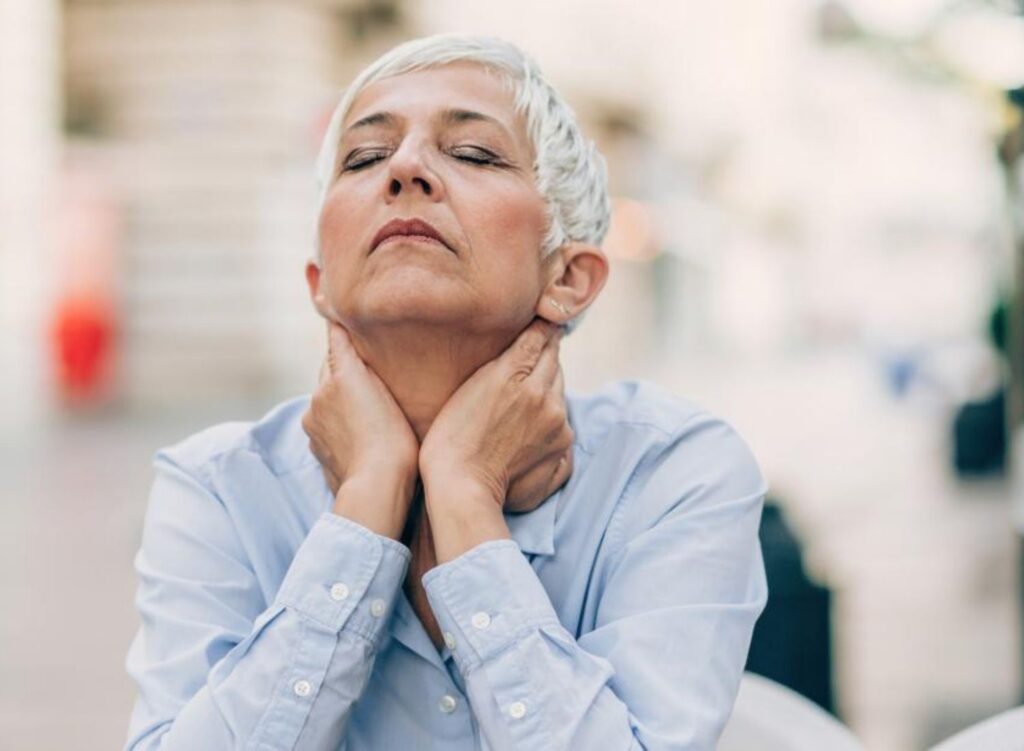The term “menopause” is described as changes a woman experiences either before or after she stops menstruating, marking the end of her reproductive cycle. It is usually seen in the 40s or 50s. Every woman may suffer from common symptoms of menopause.
The common symptoms of menopause are attributed to the dwindling levels of estrogen. Many mild symptoms can be easily treated by lifestyle modifications, like avoiding coffee or carrying a portable fan for hot flashes, eating certain food, etc. However, other symptoms of menopause can be more complicated.
Common Symptoms Of Menopause
Here are the most common symptoms of menopause. Some may be due to aging rather than menopause.
1. Irregularity In Periods

Irregularity in periods is usually the first symptom of menopause that is noticed. Periods are no longer regular, or they may be shorter or longer in duration. The bleeding may also differ from the regular days.
Consult a gynecologist if:
- Two periods come consecutively, in a short period.
- Experience heavy bleeding and spotting.
- Periods last for more than a week.
2. Hot Flashes

It is one of the most common symptoms of menopause many women face, which may last for a few years after menopause. It is caused due to fluctuating levels of estrogen. A hot flash is a sudden feeling of feverish heat in the whole upper part of the body. Usually, the face and neck are affected. One may find red blotches on the chest, back, and limbs. Profuse sweating and cold intolerance can also follow.
Hot flashes may be mild or severe enough to disturb the sleep cycle (called night sweats). Typically, they last between 30 seconds and 10 minutes. They may occur several times an hour, a few times in a day, or just once a week.
3. Vaginal Health And Urinary Bladder Control

After menopause, the vagina may get drier, which can lead to painful coitus. Moreover, the vagina also becomes more susceptible to infections. Along with vaginal problems, bladder problems like bladder incontinence, the increased frequency may also occur. They might have a sudden urge to urinate, or urine may leak while exercising or sneezing.
4. Sleep Troubles

Menopause is responsible for disturbing a good night’s sleep for women. Some women may have insomnia, and night sweats tend to add up to this trouble. Night sweats occurring during the night cause sleep disturbance and break a good sleep cycle in women. Such prolonged sleep troubles may cause drowsiness after waking up, tiredness, insomnia, etc., in women.
5. Decreased Sexual Activity

Some women may find themselves not interested in sexual activity. This decrease in libido is due to the change in hormone levels. In comparison, some might feel more liberated and free after menopause. After one year without a period, one can no longer become pregnant; however, they are still at risk for sexually transmitted diseases, such as gonorrhea, herpes, AIDS, etc. Hence continue using protection even after menopause.
6. Mood Swings

Mood swings are the common symptoms of menopause. Women experience many mood swings during this period. They tend to get irritable instantly. The exact cause is still unknown; however, stress, work pressure, personal challenges, a history of depression may be responsible for the same.
7. Bodily Changes

Many bodily changes can also be seen, like the waist may get bigger, in general, weight gain. The skin may become drier and thinner, while hair and nails become brittle. One may also have memory troubles. The joints and muscles may feel stiff and achy. There may be headaches and heart palpitations. There are no specific explanations or theories for these changes.
The severity of all the common symptoms of menopause varies greatly from one woman to another. Be careful and consult your doctor immediately if you don’t feel right at all.







